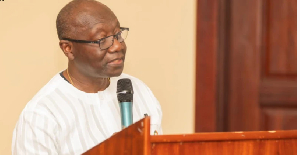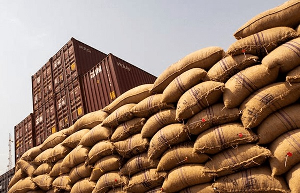The fact that the cedi has lost just over 4percent of its value to the US dollar since the start of the year means it could well be on course to break the cycle of performing poorly in election years, analysts have said.
Currency watcher, RMB Global Markets Research, predicts that the currency will finish the year on a high, “as a result of improved investor sentiment due to the successful third review of the IMF programme.”
Currently, the cedi as quoted by the central bank, is trading at GH¢3.96, with RMB predicting that the performance is likely to strengthen further, citing as a further reason the fact that Cocobod’s US$1.8 billion syndicated loan has hit the coffers of the central bank.
Investment advisory firm, InvestCorp in its September 2016 economic report, also said the MPC decision to keep the policy rate at 26 percent should help guide the market along the path of macro stability as experienced so far this year.
“Without any major upset (especially with respect to fiscal slippages), we expect this decision, combined with the recent amendments to the surrender and repatriation of export receipts announcement by the Bank of Ghana, Eurobond issuance and cocoa loan syndication, to keep the currency market and inflation relatively stable in Q4-2016,” the report said.
As at the end of October 2016, the cedi lost 4.3 percent of its value to the US dollar, arguably its best performance against its major trading partner in three years.
Last year, the local currency suffered a 15.7 percent depreciation, whilst in 2014, it was even higher at 30.9 percent.
But this year a combination of an IMF bailout programme, a US$1.8 billion cocoa syndicated loan, a US$750 million Eurobond and the central bank’s tightening of the monetary policy has led to the cedi recording one of its best performances in recent years.
The last time Ghana went to the polls – the year 2012 – the cedi’s performance was largely erratic in the first half of the year when it depreciated by 17.2 percent, recovering to finish the year at 17.5 percent.
In 2008, when the ruling government won at the polls, the cedi begun the year trading at GH¢0.95 to the dollar and closed at GH¢1.11, a depreciation of about 17 percent.
Business News of Tuesday, 1 November 2016
Source: B&FT













